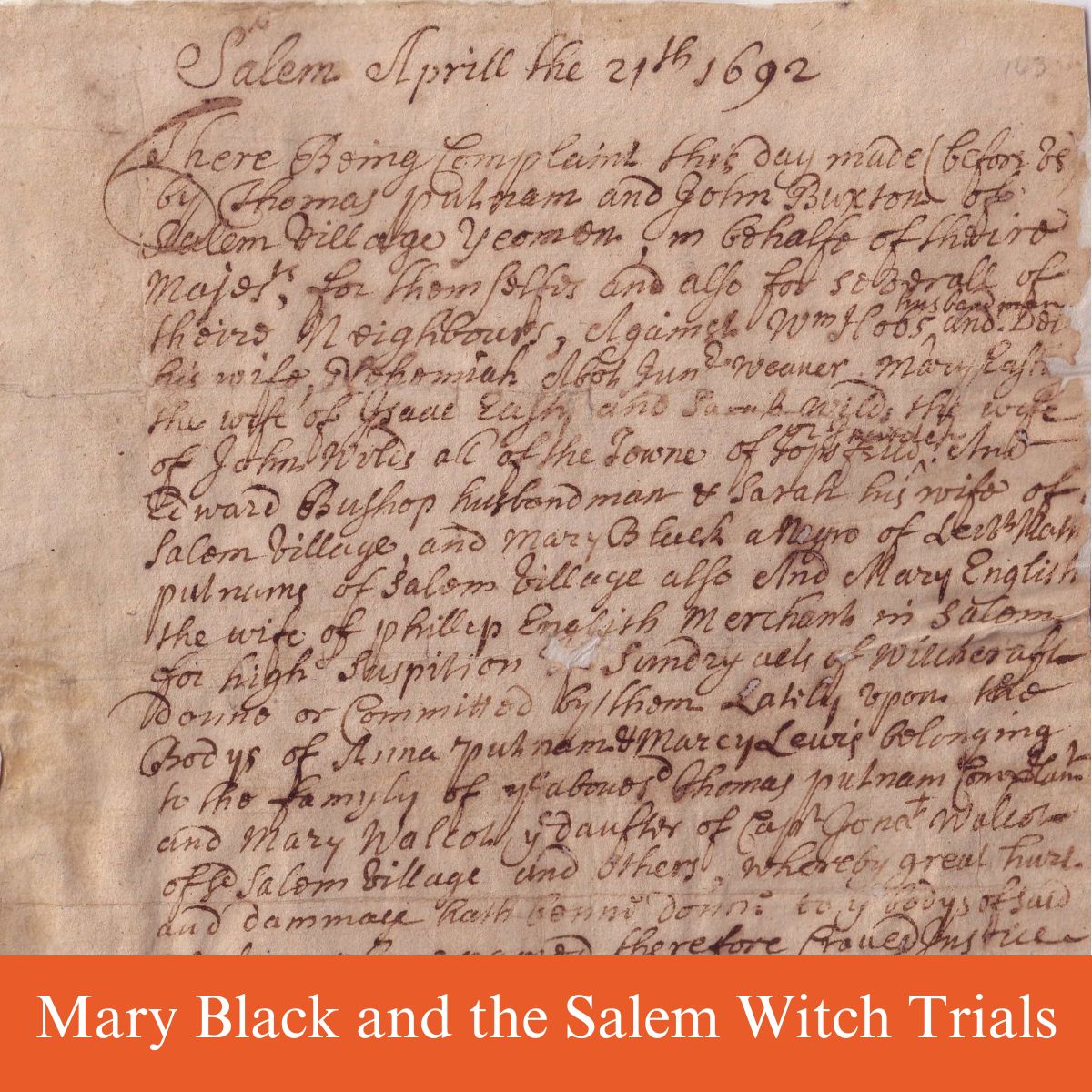Mary Black was one of three slaves (Tituba and Candy were the other two) who were accused of witchcraft during the Salem Witch Trials. Despite her being accused and low standing in Colonial America, she was set free, and nobody testified against her.

She was the servant of Nathaniel Putnam, who was a well-respected man in the community and was the uncle to Thomas Putnam, who was heavily involved in the trials.
Mary was arrested, indicted, and thrown into prison but did not go to trial. She did have to stay imprisoned until January of 1693, when the Salem Witch Trials were beginning to come to a close.
Arrest and Examination
John Hathorne and Jonathan Corwin ordered Mary Black, along with Sarah Wildes, Sarah and Edward Bishop, William and Deliverance Hobbs, Nehemiah Abbot, Mary Easty, and Mary English, to be arrested on April 21, 1692, on "high suspicion" of witchcraft performed on Ann Putnam, Jr., Mercy Lewis, Mary Walcott, and others, due to a complaint by Thomas Putnam and John Buxton.
Why she was accused of witchcraft is speculative. It is possible that since she was the servant of Nathaniel Putnam and Nathaniel had testified in favor of Rebecca Nurse during her trial, the Putnam family decided to go after his servant. At this time in Massachusetts Bay, there was no value in accusing a slave except to hurt their master.
Her examination, which was recorded by Samuel Parris, was notable for the fact she was asked to re-pin her neckcloth, which seemingly caused the afflicted girls, including Mary Walcott, Abigail Williams, and Mercy Lewis, to be pricked to the point of drawing blood, according to the transcript. Mary maintained her innocence.
Mary was put on trial in January 1693, and no one appeared against her, so she was released. It is not clear as to why nobody testified against her. However, it is possible that it was due to Nathaniel Putnam's standing in the community. He was well-respected and did not accuse her himself.
Most of those who were accused had some conflicts with others in the past, or there was another motive that usually related to the accused estate. Executing a slave for witchcraft give no value to anyone involved, and since Mary Black belonged to one of Salem's most powerful, her trial did not last long.
Despite being innocent and having one of the weakest cases put against her in court, Mary Black stayed in jail until late January 1693.
As already mentioned, Mary Black, Tituba, and Candy were all slaves who were accused, and all survived the Salem Witch Trials.
